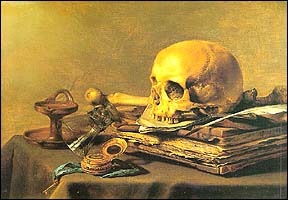1. The Republic of Virtue was the name of Robespierre's set civic code during his reign of terror. The code sought to create social stability in the face of the recent despotism by using rousseausian ideals.
2. The directory sought to keep its power by not only pleasing the gentry through democratic means, it itself being a bicameral legislature, but also by either pleasing the authorities and nobility or keeping them at bay. The directory finally came to forced nearly militaristic end in 1799 by Sieyès in a napoleonic context.
3. The plain refers to the majority of the members in the National Convention who held significant voting power. Above them, the elite members, were known as the mountains. The two eventually joined together with the Jacobins in the execution of the king and the overthrow of Robespierre.
4. The British victory at Trafalgar was significant in that it declared Britains navy superior to the french (and Spanish). The battle also implied Britains control of the channel between them and France, serving as an adamant wall in any potential napoleonic invasions.
5. While Napoleon coiling easily grab the scattered states of Italy and what would be Germany, Napoleon failed in fighting any large nations. Napoleons clear and decisive defeat on the Russian front demonstrated his inability to fight greater empires, as well as his lack of knowledge of Russian winters.
6. The Napoleonic Code certainly provided several additional privileges to men over women. The code clearly tried to firmly re establish the patriarchal traditions that France derives from.
7. After mobs expelled 29 Girodins from the convention, Marat, who was a notable 'mountain' was stabbed to death in his own bathtub.








